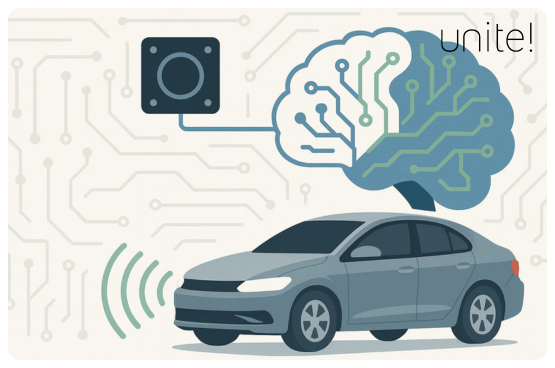
Neuromorphic AI for Energy-Efficient Automated Driving
Unite! seed-funded project explores the potential of low-power sensing and computing for the next generation of intelligent vehicles.
As automated vehicles become more advanced, their energy demands increase rapidly, especially for perception and decision-making. While conventional AI approaches offer high performance, they are often too energy-intensive for scalable and mobile applications in automated vehicles. A promising alternative is neuromorphic computing, which uses brain-inspired techniques like event-based cameras, spiking neural networks, and specialized low-power hardware.
To explore this emerging field, a Unite! Seed Fund Project is bringing together researchers from across the alliance for a workshop dedicated to energy-efficient neuromorphic sensing and computing in automotive applications. The goal is to bridge the gap between theory and application, define new research directions, and establish long-term collaborations.
Key objectives include identifying major research topics based on real-world use cases, structuring a joint research roadmap, and developing collaborative concepts. The workshop should also lead to the development of a small demonstrator to test initial ideas and evaluate their potential for real-world applications in automated driving.
“By connecting expertise across disciplines and institutions, this initiative contributes to advancing sustainable, intelligent mobility and reinforces the role of Unite! as a catalyst for research-driven innovation in AI and automotive technologies"
The TU Darmstadt, KTH Stockholm and TU Graz are participating in the Seed Fund project.
